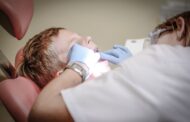Your heart is melted when your little angel smiles at you. Naturally, you want to keep your child content. You’re mentally and emotionally focused on making your child feel loved and protecting them from one day to the next. However, on a more practical level, are they going the extra mile to guard their pearly whites?
What is the root cause of these unwanted cavities?
According to studies, tooth decay affects 60-90 percent of children in most industrialized countries, even though it is largely avoidable if you’re looking for ways to ensure that your tooth-healthy. Here are some tips for preventing cavities in the first year of childhood or visit their website for more information.
Avoid Sugary Drinks
Sometimes (or often), drink sweet drinks. It’s fair that your child consumes sweet beverages. In trying to help them, they’ll end up damaging the child. A bottle not used properly can cause cavities and other dental issues. Don’t put drinks that contain sugar in the bottle of your child. Drink sugary beverages in diluted form with water to remove your child from them. Add water until your child is drinking only water. A food color or swishy straw could create a fun experience with water.
Lessen Bedtime Bottles
If your child is a baby and you are tempted to leave a bottle filled with milk with them before bed. It’s all you need to do to keep them happy and thus allow you to sleep more. Yes, bedtime bottles may offer comfort to your child. However, they can be highly damaging to the teeth. When sugar from formula or milk remains in your child’s mouth, it could cause dental decay and, as a consequence, pain.
Brush and Floss
Brushing with your child when they’re older will inspire them to brush. Leave cleaning brushes in the kitchen, and teach them to clean after eating. Cleaning your child’s teeth is a great way to establish a home oral hygiene routine. You can also keep track of your child’s brushing habits. Children who live in areas without fluoridation do not have access to fluoridated water. Inform your children that they should take out extra toothpaste but not rinse to compensate. It’s known in the medical field as “spit-no-rinse. “
Choose a Child-Friendly Dentist
Make sure your child visits a dental clinic suitable for children as soon as possible to avoid cavities. Before your child’s first birthday, you should book a dentist appointment. Then, visit the dentist at least every six months. Your child’s visits to the dentist will keep teeth from decaying. Your child’s dentist can treat decay right away. Tooth decay is painful and can spread as an infectious disease.
Begin Oral Cleanings Immediately
Even if your child is just a toddler, they need the same dental care as older children. Clean their gums with the help of a clean, damp cloth. This will improve the odds of healthy teeth even before they erupt. This also helps your child become familiar with proper oral hygiene even when still incredibly young.
Encourage Healthy Eating
Helping your child take better care of their diet can boost dental health. Fruits and vegetables with a lot of water stimulate saliva production. It produces saliva, which helps to strengthen teeth. Dairy and other calcium-rich foods help strengthen tooth enamel and prevent cavities. These foods neutralize tooth-eroding acids (more on that later ).
Lessen Sweets Intake
Chocolate-based sweets like chocolate biscuits are entangled in the grooves of teeth. They can cause tooth decay if your child doesn’t brush properly. Bacteria turn starch and sugar into acids that cause tooth decay. The acids wear away tooth enamel, which causes holes to develop. Eliminating these drinks and foods from your child’s diet is unrealistic. Try to reduce their use. Your child should brush or floss following a meal of starchy foods.
Gargle Water
Rinsing your child’s mouth with water can help prevent the formation of cavities. After eating, they can splash water around to eliminate food particles, particularly after starchy meals. The water rinses and cleanses. First, it cleanses foods that feed bacteria as well as neutralizes acidity. It assists in repairing weak enamel as it has minerals necessary for strong teeth. If your child doesn’t have mouthwash or a toothbrush, use water. Water that is fluoridated can protect against the decay of teeth and tooth decay.
Conclusion
A lack of dental hygiene among your children can lead to issues like cavities, tooth loss, and severe discomfort. Children may also suffer from spaces in the adult tooth that are lost or speech difficulties such as dental phobia, speech problems, and low self-esteem. As a result, professionals are enthusiastic about studying their patients at all stages of life. Sealants, fillings, cleaning, and extractions are just a few services they provide for children.



